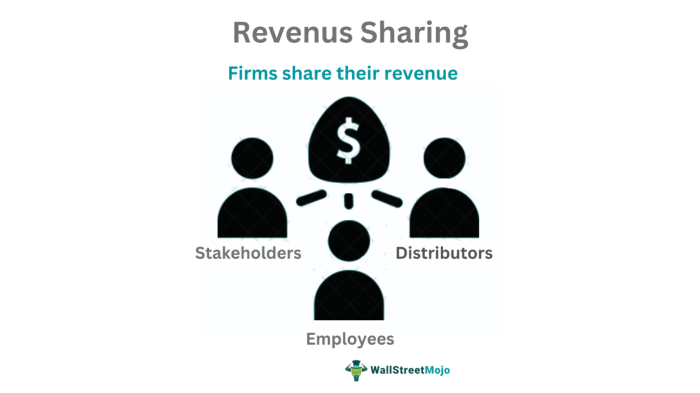How Revenue Sharing Works in Private Investments
How Revenue Sharing Works in Private Investments sets the stage for this enthralling narrative, offering readers a glimpse into a story that is rich in detail and brimming with originality. It explores the intricate world of revenue sharing in private investments, shedding light on its inner workings and implications for both investors and companies.
Dive into the realm of revenue sharing agreements and uncover the complexities that govern this financial arrangement, from the different models utilized to the legal considerations that underpin such agreements.
Overview of Revenue Sharing in Private Investments

Revenue sharing in private investments involves an agreement where investors receive a share of the revenue generated by a company in exchange for their investment. This type of arrangement is common in startups and early-stage companies looking for alternative funding options.
How Revenue Sharing Agreements Work
Revenue sharing agreements typically Artikel the percentage of revenue that will be shared with investors and the duration of the agreement. For example, an investor may provide funding to a company in exchange for 10% of the company's revenue for the next five years.
This allows investors to benefit directly from the company's success without taking an equity stake.
Benefits and Risks
- Benefits for Investors:
- Investors have the potential to earn a steady stream of income based on the company's revenue performance.
- Investors do not have to wait for a liquidity event, such as an IPO or acquisition, to realize returns.
- Investors have a lower risk compared to equity investments, as their returns are tied to the company's revenue.
- Risks for Investors:
- If the company does not generate sufficient revenue, investors may not receive the expected returns.
- Investors may miss out on potential upside if the company experiences significant growth beyond the agreed-upon revenue sharing percentage.
- Benefits for Companies:
- Companies can access funding without giving up equity or control of their business.
- Companies can attract investors who are willing to take on revenue-based returns rather than equity stakes.
- Risks for Companies:
- If the company's revenue grows rapidly, they may end up sharing a larger portion of their earnings with investors than anticipated.
- Companies may face pressure to prioritize short-term revenue generation over long-term growth to meet revenue sharing obligations.
Types of Revenue Sharing Models
Revenue sharing models in private investments can take various forms, each with its own set of terms and conditions. Two common types of revenue sharing models are performance-based revenue sharing and equity-based revenue sharing. Let's explore how these models differ and how they are applied in different investment structures and industries.
Performance-Based Revenue Sharing
Performance-based revenue sharing involves sharing a percentage of the profits generated by an investment based on specific performance metrics. This model incentivizes the parties involved to work towards achieving certain goals or milestones to earn a share of the revenue.
For example, a performance-based revenue sharing agreement may specify that a certain percentage of the profits will be distributed once a project reaches a certain revenue target or return on investment.
Equity-Based Revenue Sharing
Equity-based revenue sharing, on the other hand, involves sharing revenue based on ownership stakes in a project or company. In this model, investors receive a share of the revenue proportional to their equity ownership. This means that individuals or entities with larger equity stakes will receive a higher percentage of the revenue generated.
Equity-based revenue sharing is common in joint ventures or partnerships where multiple parties contribute capital to a project.
Variations in Revenue Sharing Models
Revenue sharing models can vary significantly depending on the investment structure and the industry in which they are applied. For instance, revenue sharing agreements in real estate investments may involve profit-sharing from rental income or property appreciation. In the technology industry, revenue sharing models may be based on licensing agreements or royalties from the sale of intellectual property.
The terms of revenue sharing can also be influenced by factors such as market conditions, investor preferences, and the overall financial health of the investment opportunity.
Factors Influencing Revenue Sharing Agreements

Revenue sharing agreements in private investments are influenced by several key factors that shape the terms and conditions of the arrangement. Understanding these factors is crucial for both investors and companies entering into such agreements.
Market Conditions and Company Performance
Market conditions play a significant role in determining the terms of revenue sharing agreements. In times of economic growth and stability, investors may expect higher returns, leading to more favorable revenue sharing terms. Conversely, during economic downturns or market volatility, investors may seek more conservative arrangements to mitigate risk.Company performance is another crucial factor that impacts revenue sharing agreements.
Investors are likely to negotiate for a larger share of revenues if the company is performing well and showing strong growth potential. On the other hand, if the company is facing challenges or underperforming, investors may demand more protections and guarantees, resulting in less favorable terms for revenue sharing.Negotiation and Due DiligenceThe negotiation process between investors and companies plays a vital role in determining the terms of revenue sharing agreements.
Both parties must engage in thorough discussions to reach a mutually beneficial arrangement that aligns with their goals and expectations. Factors such as the company's financial health, growth prospects, and competitive landscape are carefully evaluated during the due diligence process to assess the feasibility of revenue sharing terms.Overall, factors such as market conditions, company performance, negotiation, and due diligence all play a critical role in shaping revenue sharing agreements in private investments.
It is essential for both parties to consider these factors carefully to ensure a successful and sustainable partnership.
Legal and Compliance Considerations
When it comes to revenue sharing in private investments, there are important legal requirements and regulations that need to be considered. It is crucial for all parties involved to adhere to these guidelines to ensure transparency and accountability in the agreement.
Importance of Drafting Clear and Enforceable Revenue Sharing Agreements
Creating a clear and enforceable revenue sharing agreement is essential to avoid any misunderstandings or disputes in the future. The agreement should clearly Artikel the terms and conditions of the revenue sharing arrangement, including the percentage of revenue to be shared, the duration of the agreement, and any other relevant details.
By having a well-drafted agreement in place, all parties can protect their interests and ensure that the terms of the arrangement are upheld.
Protecting Investors’ Interests through Legal Documentation
Investors can protect their interests by ensuring that proper legal documentation is in place. This includes having a detailed revenue sharing agreement that is reviewed by legal professionals to ensure compliance with relevant laws and regulations. Additionally, investors should conduct thorough due diligence on the investment opportunity to assess the risks and potential returns associated with the revenue sharing agreement.
By taking these steps, investors can safeguard their interests and make informed decisions when entering into revenue sharing agreements.
Summary
In conclusion, How Revenue Sharing Works in Private Investments encapsulates the essence of a dynamic financial landscape where risks and rewards converge. This exploration serves as a valuable guide for those navigating the realm of private investments, offering insights that can shape strategic decisions and foster informed choices.
Query Resolution
What are the key benefits of revenue sharing for investors?
Revenue sharing provides investors with a direct link to a company's performance, allowing them to benefit from its success without taking on ownership risks associated with equity.
How do market conditions influence revenue sharing agreements?
Market conditions can impact the profitability of a company, which in turn affects the revenue generated and shared with investors as per the agreed terms.
Why is drafting clear and enforceable revenue sharing agreements important?
Clear and enforceable agreements ensure that all parties involved understand their rights and obligations, reducing the likelihood of disputes or misunderstandings.




